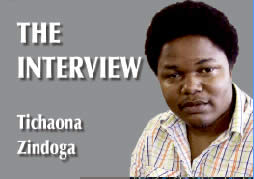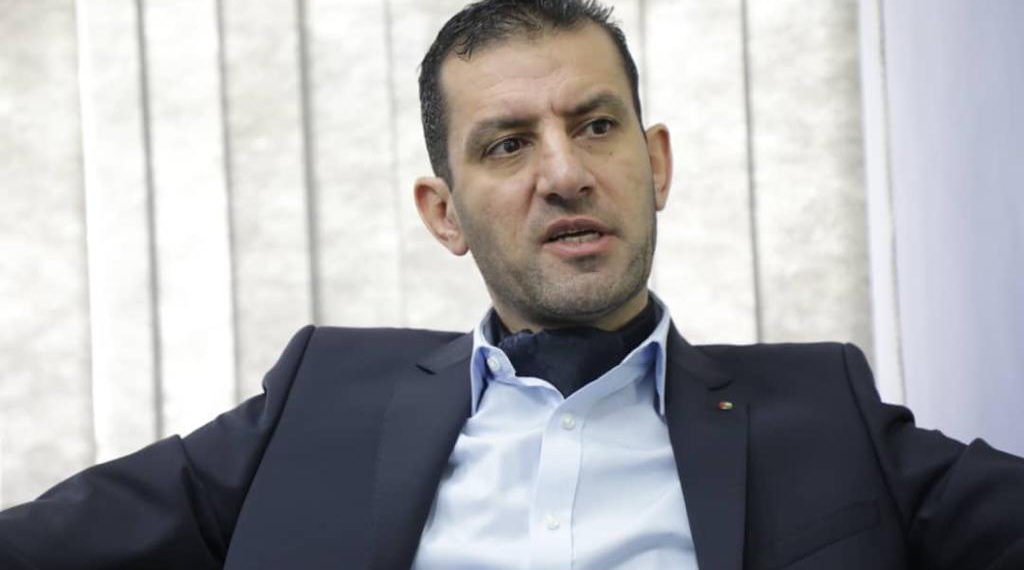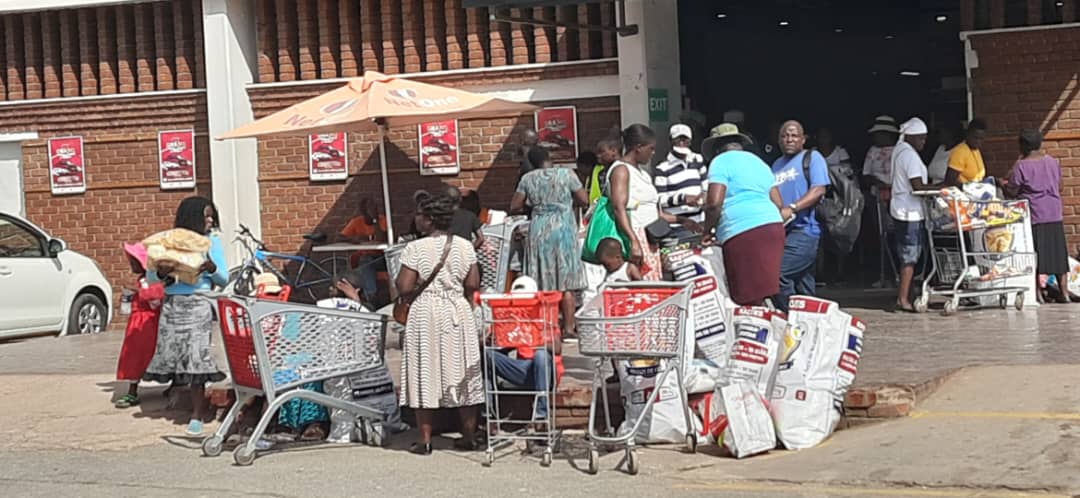NATHANIEL MANHERU: Bond Notes: Urge for timeless teenager-hood

“Quicquid agunt Homines nostri Farrago Libelli” — Juvenal, “Satires”
Repeatedly, I am receiving comments from readers who wish me away from certain topics and yet others who challenge me to grapple with this or that topic. I have no difficulties with the latter group, for their feedback draws my attention to areas of felt need. Where I have a real difficulty and aggressively so, is when readers try and define certain subject matters as off-limits.
And in the majority of cases, this censorious attitude emanates from political positions: a strange desire to protect their political assumptions or predilections from scrutiny and challenge. I am sorry I will not oblige, for to do so is to succumb to what William Blake derisively called intolerant Greek god Urizen always imaged as a hand wielding a compass with which to draw a circle around human activity.
That circle was meant to set limits to man, both physically and mentally. Fragile Urizen did not want man who sought to overreach, man who sought to exceed the human ken, thereby setting new horizons, getting nearer and nearer gods. This, William Blake abhorred with unmitigated might, which is how he coined an oft-quoted aphorism that “a tiger of wrath is better than a horse of instruction”.
He regaled instinct, rebellious reflexes. I hate little Urizens born out of fragile intellects or seeking to protect unexamined premises and values. Their responses are always unchanging, unvarying like the monotony of a pop-gun. You write too long articles; your articles are boring; who reads you, etc, etc. Well, don’t read me we see if the sun sets in the east.
We cannot cultivate a culture of intolerance over arguments we don’t like, perspectives that do not confirm our narrow prejudices. The Other Side is about freeing thoughts, engaging in debate on matters placed before the reader. The reader cannot wish me to his or her mind: by way of line of argument or choice of subject. I have made it clear I am Zanu-PF and remain firmly so until that party gives me reason to desert it. I don’t want anyone to sing Eureka on grounds that they have discovered my politics. That is who I am. But that only explains the wellspring of my values and loyalties.
Beyond that, I break taboos, which is why I have earned accolades from political friends and foes alike, indeed why this column generates so much debate. We have to debate issues, deal with matters of the heart and nation. The Latin quote I foregrounded in this piece simply means: All the doings of mankind . . . shall form the motley subject of my page. It is a good maxim for any op-Ed writer, especially one expected to submit a thought weekly.
Tackling the subject of bond notes
A good number of my readers have accosted me to share my thoughts on this whole matter of cash shortages in our economy, and the bond notes which are touted as the panacea. I oblige, but of course within the limitations of my knowledge of the subject. Yes, I have read economics and finance, but not in a way that makes me an authority.
I am more comfortable functioning as a development theorist and a transport economist, both of them applied branches of economics. What I think puts me in sound stead is the fairly quantifiable experience I have acquired in public affairs and of course my gargantuan appetite for new knowledge. If I am not singing, I am reading, always tackling new bodies of knowledge to tickle my sides. So, here we go.
No swallows, only crows
Let us get the politics shrouding debate on bond notes out of the way. There is a wish that the issue of current currency presages a return to 2008, with all the attendant political advantages to the opposition. That will not happen, believe you me, to put it colloquially. The set of circumstances are completely different and the knowledge gathered ever since 2008 is not inactive. This desperate desire to read the clock back, to read from the current shortage of cooking oil symptoms of a generalised shortage of basic commodities is just that: desperate.
It is very easy to explain the current shortage of cooking oil in terms of the raging drought that put a cap on production of oilseeds and many other agricultural products, than to rely on an outlandish, lonesome journey back to 2008. We have been depending on imported soya or matt for our oil requirements. Or simply on imported finished products, which is why even brands from as far afield as Wales could be found on our shelves.
We have been cooking like Englishmen, Indians, South Africans, you name it. Very cosmopolitan, as with many other imported edibles. The national tongue has had to be bridled, tamed firmly, that cormorant tissue which has wrought so much woe upon us. I happen to know that RBZ has since corrected matters, the key thing being to ensure importation of raw materials so jobs are retained or created.
In the meantime, a tight leash is kept on imports so we begin to eat what we produce, as the late Babu would say. So, there are no swallows there, only scavenging crows sure to have nothing to do with the movement of seasons.
When 2008 went and is gone
Then we have scaremongers amongst us who seek to reissue the horrors of 2008. They are trading in national fears, raising spectres. And as always, fears are what they usually are: unexamined prejudices and recalls masquerading as extant facts. The idea is to build a herd psychosis where rational conduct and behaviour gives way to mass hysteria, mass fear, all in the hope of getting people onto the streets.
You want to give Zimbabweans better reasons to be onto streets, surely, not a hindsight fear. Of course it is true money and value were lost in 2008 when the hyperinflation era peaked. We all know the underlying politics, the underlying economics of it all. Whilst one doesn’t want to suggest a sea-change in terms of regime change politics, equally, one does not want to create an impression that Zimbabwe’s relations with the West have not changed, have not improved.
True, the Americans remain hostile, but as one of her officials said recently in a regional capital, it is more out of inertia of two decades of bad politics and rehearsed hostility than out of refuelled animosity. Hostile policies do create limiting policy space legacies for successive governments, Miles-Tendi’s favourite thesis.
The officials have an obligation to vindicate the national position and often do so against inner conviction. You would be extremely wilful not to factor that in assessing and dealing with the current currency debate. Chinamasa has mustered a critical mass of international support on the bond notes issue. And we know who international is.
Zimbabwe the regional lynchpin
To go a little further — maybe indiscreetly so — there is now a greater appreciation of Zimbabwe’s sub-regional stabilisation role and all this after clear indications that elsewhere in the region, capacities are not as vast as imagined. This explains why the recent ruckus within Zanu-PF, with all its ominous portents for national and therefore sub-regional stability, created visible worries in the western world.
And why of course it was all smiles when the grandmaster himself signalled an end to the discordant chorus with one stroke and all went quiet. Here was firm authority, benignly applied, decisively summoned as need arose. What started off as an issue of Western angst, wound up as proof enough on who to invest in for sub-regional stability.
So, 2008 hakudzokeki, both by dint of a convergence of internal and external factors. I urge the opposition to find better areas for mobilising support, rather than thrashing dehwe dungundu. After all, in 2008, MDC-T was unravished politically. Since then, it has spent too many dull nights with all manner of suitors to promise any undiscovered, delectable corners.
When it comes to the firmament for law and order, when it comes to stability, Zimbabwe is solid, which is why all those hoping to profit on chaos must quickly give up. It takes quite a tensile political system to withstand all shocks we have had since 2000 and remain standing. Brittle systems would have buckled and bent.
It has not been lost upon the West whose worries were now focused on the age of the President: what it does to his authority. Today they are left in no doubt. And, beyond pretences to democracy, the West wants stability.
Ceding leadership to oddities
In any event, those familiar with street action will tell you the prospects for it recede by each day that passes. You don’t galvanise at the onset of challenges, you miss the boat. You allow those who are supposed to be the butt of mass action to summon a million to a square and you dispirit those intent on street action. Zanu-PF has exposed the country to challenges, but without abjuring its will to govern. That is the interplay. Only Zanu-PF can destabilise itself, my constant refrain. What is actually happening is that slowly, but inexorably, resistance to bond notes is mellowing as more information seeps through, and as people weigh the inconvenience of waiting on queues against cultivated visceral fears of the untried, unknown.
And information is gradually seeping through, creating gradual confidence. People simply want a workable medium of exchange so they get by, so they get on with their lives. That is what the argument has trimmed down to. To imagine some small collection of Mavericks at Africa Unity Square could play trigger to a rebellion is to think people willingly cede leadership to oddities.
In any case, most people have withdrawn their savings — their value — in banks which did not count for very much anyway in an economy of hand-to-mouth. That way the argument of the US dollar as a store of value gradually recedes to hallways of the academic. Again, you see why the opposition fails. For them all things remain equal all times.
A world Wall Street in Harare
I hope the preceding allows us now to get to the real issue, that of bond notes. Expectedly, the debate has thinned to irrational proportions. I suppose because there is a shortage of money for daily transactions, everyone is worrying and measuring bond notes against their answerability to challenges of transaction.
That is a common man’s response, a response of the day. Soon that will fall away and this society will have to come face to face with other issues larger than money and of course with other uses of money in an economy. I do not need to report on how the US dollar had been commodified, creating some world Wall Street, where all manner of impious hands were at play freely.
As I write, some Rwandese have just been intercepted with $87 000 in hard cash. You need to be a fool to think that money came from a gracious Allah. This is what our country had become: a cynosure for currency brutal hunters who preyed on our open economy.
We bled, and the wonder is we have not died. I hope all those who used to push for full liberalisation of the economy are still able to count the costs their arguments have wrought on us. I mean, if the US, itself the source of the much sought-after dollar, puts a cap to money in circulation, who did we think we were to go laissez faire?
If China, with such a vast reservoir of US dollars, is still looking for the same dollar, is still trading in national currency, what gave us the audacity to go where trillionnaires fear to tread? It’s plain dump, sorry.
Importing urine
Secondly, we no longer had a Central Bank. Everyone, every bank was its own central bank, collecting, keeping and deploying foreign currency as it pleased.
I am going to be nasty. We were now importing purified urine from Gauteng in the name of mineral water. As if we don’t pass water here, what with all the drinking we do! I mean if I have to buy purified urine, just allow me the decency to have it home-passed to have it indigenous. Why do I have to have it imported as if there is something in it that beats national, indigenous urine, as if Zimbabweans do not drip? All the doings — foibles — of my kind will fill my pages, I pledged. When a nation cedes its right to set priorities — grants every man the sovereignty of decisions, the result is chaos. You get into any supermarket you cannot get convinced this is a country short of foreign currency. Need we then wonder at the trade deficit?
When wealth is flaunted
Thirdly, with the US in pocket, we had developed an acute kind of universal money illusion. We had become the big boys of the region, nay, of the world. And like a global elite, we did not have to bend down and soil our hands breaking the clod, cleaning oils on engines. Who needed to produce anything? What for? And with the ever strengthening dollar, we seemed to have stumbled on a sound economic reason not to produce. And we all watched Lever Brothers turn a huge factory into a huge warehouse. No one read the full meaning of it all. And meanwhile the global money illusion sequestered us from the sheer untenability of our position.
You could fly to Dubai — political and business elite alike — and do your shopping undeterred. You could fly into South Africa with a few hundreds and not just bring in bags and bags of tradeable goods, but also come back with a feeling of being the sub-regional boss by way of purchasing power.
Who dared us, who? It was a terrible illusion, one which we now seek to defend by indecently raising the gorgon of 2008. And poor the poor, it is an argument of an itinerant elite with jaded tastes for things foreign, an elite realising it now has to be curbed. It raises populist arguments as if its joys then were ever democratically distributed.
Even our sense of corruption put on this cosmopolitan dimension: we had to steal enough to stick out in New York, Dubai and Rio. Look at how little boys flaunt ill-gotten wealth, literally drowning in the US dollar we used to see once in a lifetime. My goodness! And those youngsters are not wrong; they are what is wrong about us collectively.
Neither US, rand nor bond notes
I could go on and on, but to what good? We need to generate solutions so that we move beyond the mould of being perennial, surly self-critics. Is it the US dollar, the rand? Or bond notes? My humble submission is, that is none of the above, if the matter is to be answered with finality. Our basket of currencies has contained all manner of currencies, US dollar and rand included. The bond coins have been in circulation, in fact toppled the rand. So one cannot be proposing new scenarios by postulating the extant.
The issue is to situate each of these currencies along the path to some definable and desirable endgame. The issue is to be able to make a diagnosis which is economy-wide, and within it, appreciate the role of money and currencies.
We should learn from dollarisation. We trimmed the problem to curing hyperinflation, and thus injected a narrow, Friedman solution. See where we are: chasing the dollar, attracting crooks, producing nothing.
Today we run the risk of thinking that if we liquidify the economy, all our problems will vanish. That one variable miracle which all economics textbooks decry! We need an encompassing view to our challenges, so we evolve an equally encompassing solution which tames multiple variables, while building mutual reinforcement for recovery. The factors are just about right, and the elites — you and me — must give society expansive solutions that situate national effort, that spread it.
Greening the veld
And key to all this is a return productivity, starting with agriculture. We have to meet our food self-sufficiency. And to generate marketable surplus which feed into industry. And it is such a low hanging fruit that we are talking about a season. I see efforts in that direction. But we should not think this must be left to market forces. Never. The emotive value of land has now been exhausted, people have been given time to prove they are good farmers. It is time to move on, which is why Arda and her partnerships model is a good starting point.
We need targeted cropping, something fairly achievable. This will have an instant impact on Agro-processing concerns, which happen to employ millions. The lessons of contract farming in tobacco must now inform other sub-sectors of agriculture. Maybe the Chinese were right: we should not care the colour of the cat for as long as it catches mice. But it must catch mice. As our capacities improve, we can always put back the national question. The amounts we are spending on food imports just make our whole production model criminal, we who have the land, the water, the infrastructure and, in some areas, the expertise. I see GMB has started well. We need to consolidate. The efforts of the two VPs are commendable. Let’s green the veld.
Infrastructure, bad debtors
Secondly, we must just focus on building a world-class infrastructure, which anticipates our return to primeness. The roads. Rail. Motor transport. Pipelines. The transport sector appears to be under a go-getter now. We should gain traction. The beauty is that such an approach meets and allays the politician’s anxieties, ahead of 2018. Many jobs will be created instantly for the youth. Infrastructure will be ready for a rebound.
Thirdly, we must up current efforts on revamping of utilities, with energy as our priority. Whatever bad apples we have had in the energy basket should not take away from the correctness of the focus, take our focus away from the big picture. We need to keep focused on energy generation to surplus. Administrative interventions to clean up the mess in that area can be done, with minimum disruption to the current thrust. The key thing being to keep Chinese loans well-serviced so we unlock more support. Currently, we fare very badly as debtors. We should seek to improve, now that national priorities are being set around foreign exchange usage.
Or else the line dries up
Of course the sectors of mining and tourism must maintain their current tempo, improve even, so the system remains liquid. I don’t want to congest the argument. I want to get back to the currency issue. Well, simply you cannot do all these things in an environment where we fear to be grown-ups. Where we fear to be ourselves. We just have to aim at going back to a national currency, with all the lessons we have garnered from the bruises of yore. Only then can we plan. Our dilemma is a straightforward one: an overvalued US dollar we cannot influence; an ever depreciating rand we cannot buoy.
And anyway, neither will get us to do the things outlined above, given our state of exports. Fullstop. Bond notes. Maybe yes, but as a confidence-building monetary interregnum. As long as it plays surrogate to the US, all our processes make us expensive, thereby disabling our export effort. Yes, indigents in the dollar will stop crooks from stealing our dollars. And then? This whole argument about black market, when did it ever stop? Do those making that argument ply Robert Mugabe Way, from Eastgate? That cannot hold us back. We can’t remain teenagers because an elder brother was deserted by his wife yesterday; while the one who comes after him came back spotting a blue eye, spitting bloody spittle from his irate wife. We have to get married at some point, or the line will dry up.
Icho!








Comments